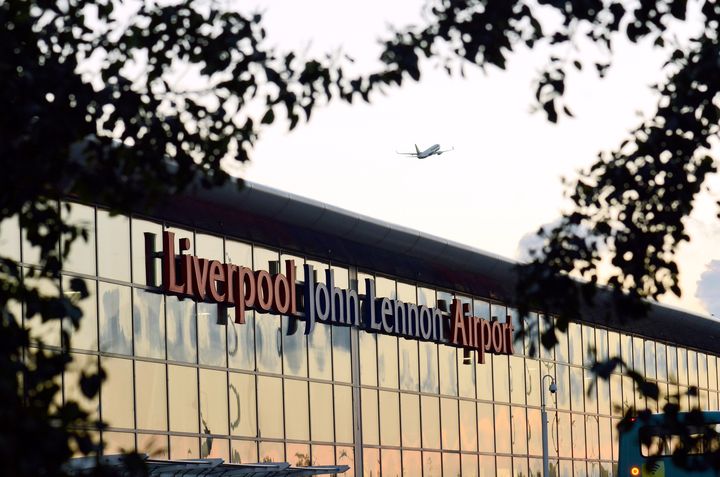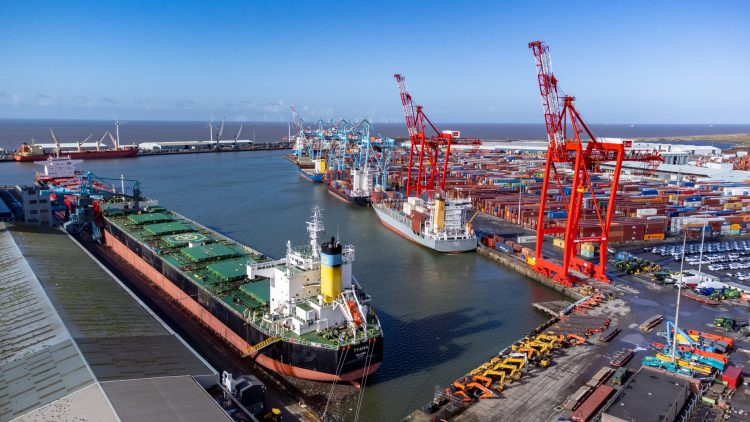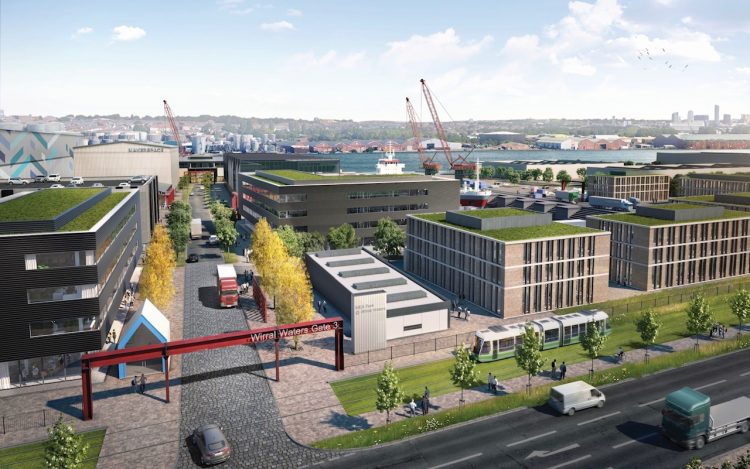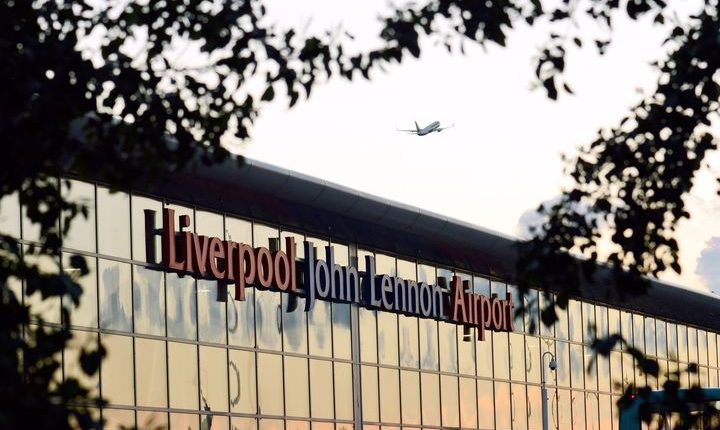Government funding of £25m will kick off the new Liverpool City Region Freeport in early summer with Liverpool Airport a possible first location. Tony McDonough reports

A final business case for the new Liverpool City Region Freeport has been submitted to the Government which should unlock £25m to kick-start the project in early summer.
And LBN understands Liverpool John Lennon Airport (LJLA) has been earmarked as the first possible location for a Freeport zone. The airport has already set aside a piece of land for the creation of an enlarged air freight logistics hub.
Air freight has always been a part of the airport’s offer, but not a big one, with the main focus over the past 20 years on growing passenger traffic via budget airlines such as easyJet and Ryanair.
LJLA’s freight facilities are handled by its commercial partner, Wynne Aviation. Pre-pandemic one of its main sources of business was the automotive sector. Big automotive operators in the city region include Jaguar Land Rover, Ford and Vauxhall (now Stellantis). During the pandemic the facility also handled PPE and COVID testing kits.
Manchester Airport is currently the main air freight hub for the North West, handling around 120,000 tonnes of import and export cargo, and mail, every year. However, Liverpool Airport will gain a significant advantage by being within a Freeport zone and is being offered the opportunity to significantly grow its footprint.
Liverpool city region will be home to one of just eight Freeports in England. The new Freeports are expected to be hubs of business and enterprise which have the potential to create thousands of jobs, help regenerate communities and establish Britain’s post-Brexit place in the world. There are currently around 2,800 Freeport zones around the world.
In March 2021, Chancellor Rishi Sunak announced that Liverpool city region would be one of eight new English Freeport zones. They are Thames, Solent, East Midlands, Freeport East (Felixstowe and Harwich), Plymouth and South Devon, Humber and Teeside. It is expected more Freeport locations will be revealed at a later date.
A flagship policy in the Conservative’s 2019 election manifesto, Freeports are designated zones where normal tax and customs rules do not apply. These can be airports or other hubs as well as maritime ports. At a Freeport, imports can enter with simplified customs documentation and without paying tariffs.
READ MORE: Freepprt offers rewards and risks
READ MORE: Freeport drives up city region industrial demand
There are some 80 Freeports or free zones within the EU and, until 2012, Britain had seven Freeports, including one at the Port of Liverpool. However, unlike the previous incarnation, Liverpool city region’s new Freeport will have a much bigger geographical footprint, covering multiple locations.
These include the Port of Liverpool, Wirral Waters, Liverpool John Lennon Airport, logistics sites in Knowsley, Sefton, St Helens and West Lancs and the Stobart rail freight terminal in Halton. It is estimated the Freeport could secure investment of £800m, boost the city region’s GVA by £850m and help to create 14,000 new jobs.
John Lucy, the Liverpool City Region Freeport Director, said: “Having our outline business case accepted is a hugely significant step towards our Freeport becoming operational and attracting businesses to take advantage of the full range of benefits we can offer, which will in turn create thousands of sustainable, high-quality jobs.
“We will attract additional trade through the port of Liverpool but the Freeport will bring benefits for the whole of the Liverpool city region, extending as it does over a large part of our region with a number of sites offering benefits to businesses.


“There’s a comprehensive measure of packages that includes tax relief and support for customs, business rates, planning, regeneration, R&D and upskilling. New technologies and sustainable innovations are taking centre stage and providing answers to the challenges that a lot of large, complex companies are facing.”
Decarbonisation will be a key aspect of the Freeport zone and the initiative will play a role in furthering the net zero carbon ambition laid out by Metro Mayor Steve Rotheram. In December last year LBN reported a plan for a fleet of zero-emission hydrogen-powered lorries will carry freight between the multiple sites.
Centred on a mix of infrastructure including the Liverpool2 deep-water container terminal at the Port of Liverpool – the UK’s biggest western facing port, which already handles 45% of trade from the US –it’s the key coastal access point to the UK’s largest concentration of manufacturing.
Targeting key sectors including automotive, biomanufacturing/pharmaceuticals and maritime, the LCR Freeport will also support and attract new advanced manufacturing, logistics and low carbon energy industries.
Critics of Freeports say they can provide cover for tax evasion and other illicit activity. But Mr Rotheram says the Freeport team will work to ensure that risk is minimised adding that it will “help us attract critical inward investment and create well-paid, highly skilled jobs”.
He added: “ It is predicted that our Freeport has the potential to add an additional £850m to the local economy and will help us to build on some of our existing world class strengths.
“But, for us, it means much more than that. Throughout this journey, I’ve asked for guarantees to ensure that we’ll use our Freeport as a force for good, to help build an economy that works for everyone in our region.
“I want to attract investors into our region who believe in and support our local ambitions. Our Freeport will offer lots of opportunities for the Liverpool City Region. It’s my vision to ensure that there is purpose behind that status – that not only drives our economy, but fuels greater social mobility, innovation, and inclusion for our whole region.”

